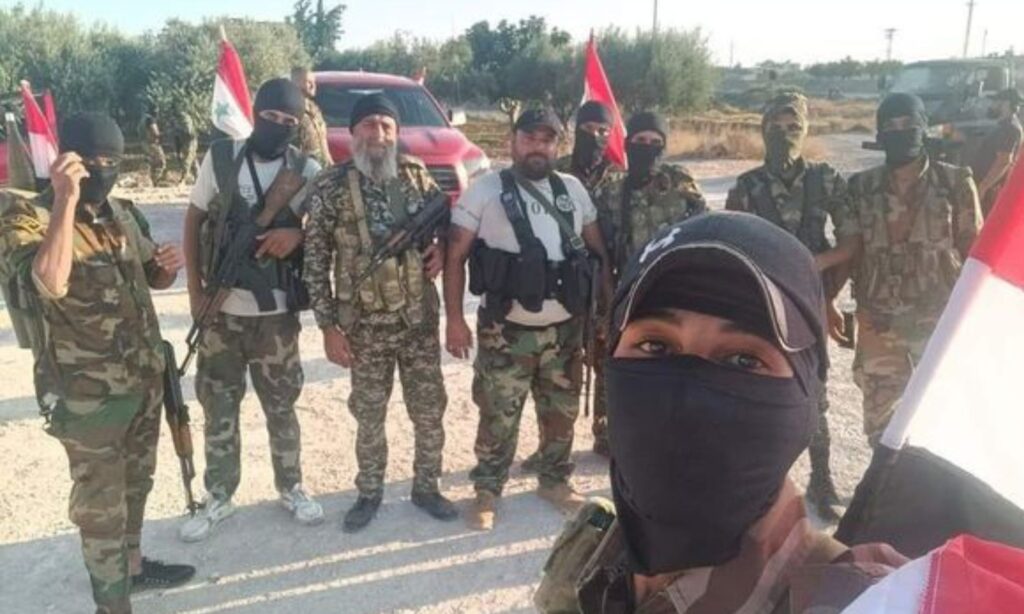The Syrian regime forces carried out a security campaign in the city of Talbiseh in the northern countryside of Homs, according to city residents speaking to Enab Baladi.
The local Sham FM radio station reported today, Thursday, September 5, that the concerned authorities, in cooperation with the residents of Talbiseh, are starting a “campaign to arrest lawbreakers including drug dealers and kidnapping and robbery gangs, who disrupt the Homs-Hama international highway, with the aim of restoring security and tranquility to the area.”
Official regime media outlets did not cover the event until the time of reporting.
Videos and photos of regime forces entering the city were circulated on social media platforms.
The regime forces took control of Talbiseh in May 2018 after it was held by the Syrian opposition. Several settlements were subsequently conducted for the city’s residents.
Elements from the regime forces and affiliated militias during the storming of Talbiseh city, north of Homs (Social media platforms)
The area is still classified as a de-escalation zone, as per the agreement signed on May 4, 2017, known as the Astana Agreement sponsored by Russia, Iran, and Turkey, which provides for the establishment of four safe zones in Syria.
Elements from the regime forces and affiliated militias during the storming of Talbiseh city, north of Homs (Social media platforms)
Luka’s presence
On August 22, the head of the General Intelligence Directorate in Syria, Major General Hussam Luka, met with representatives from the city of Talbiseh for the third time in two months.
The meeting coincided with the gathering of military forces, mainly from the Air Force Intelligence, near the former Malook checkpoint at the southern entrance of Talbiseh.
The main reason for the military build-up and the meeting, according to Luka, is that the city, despite ongoing settlements, still houses many individuals accused of possessing weapons who have not surrendered their arms, preventing the completion of their settlements.
The meeting came about a month after the start of the third settlement in the city.
The latest settlement grants one month to those fleeing military service, both regular and reserve, to return to their military units, and six months for those who are overdue for reserve and regular services to join the army.
The settlement also grants six months for those with judicial and criminal issues to address their matters in court without being subjected to arrest.
Rebellion and drug trafficking
After the opposition factions evacuated the northern countryside of Homs, the Jaysh al-Tawhid faction remained alone, entrenched amidst the rubble left by the battles in Talbiseh, forming a wing for the Russian forces there.
Despite the regime’s control over the area with Russian support, Talbiseh remained outside its actual security control, as it did not enter the area as it did with other settlement areas.
The Russian permission for the regime to arrest leaders of Jaysh al-Tawhid led its fighters into different paths; some returned to their previous civilian jobs, others joined Iranian-backed militias, and some collaborated with security agencies and Hezbollah.
Following the settlement agreement in the northern countryside of Homs, the city turned into a market for drug and weapon trafficking, with the remaining groups collaborating with security branches, Hezbollah, and Iranian militias to facilitate their activities.

